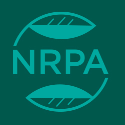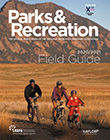
2023 NRPA Annual Conference Speed Session Bundle
-
You must log in to register
- Non-Members - $400
- Members - $280
- Premier Members - $280
Stream all 29 speed sessions from the 2023 NRPA Annual Conference, held in Dallas, Texas on October 10-12, 2023! This complete 2023 NRPA Annual Conference Speed Session Bundle is available at a 20% discount and equals up to 1.16 CEU.
-
Includes Credits
This 20-minute speed session from the 2023 NRPA Annual Conference is available here on demand.
-
Includes Credits
This 20-minute speed session from the 2023 NRPA Annual Conference is available here on demand.
-
Includes Credits
This 20-minute speed session from the 2023 NRPA Annual Conference is available here on demand.
-
Includes Credits
This 20-minute speed session from the 2023 NRPA Annual Conference is available here on demand.
-
Includes Credits
This 20-minute speed session from the 2023 NRPA Annual Conference is available here on demand.
-
Includes Credits
This 20-minute speed session from the 2023 NRPA Annual Conference is available here on demand.
-
Includes Credits
This 20-minute speed session from the 2023 NRPA Annual Conference is available here on demand.
-
Includes Credits
This 20-minute speed session from the 2023 NRPA Annual Conference is available here on demand.
-
Includes Credits
This 20-minute speed session from the 2023 NRPA Annual Conference is available here on demand.
-
Includes Credits
This 20-minute speed session from the 2023 NRPA Annual Conference is available here on demand.


Engage With Us